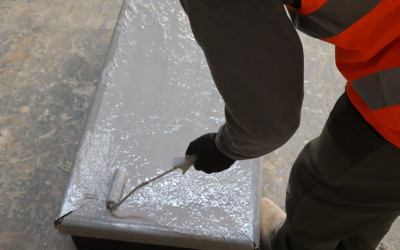SINGING FROM THE SAME HYMN SHEET
Requested by Sir David Amess MP (pictured), and former firefighter and MP Jim Fitzpatrick (Chairman and Secretary of the All-Party Parliamentary Fire Safety & Rescue Group), the first dedicated debate on the subject since 2014 made it abundantly clear that sprinklers should be part of overall fire safety solutions in both new and existing buildings. There was a unified voice across the members in the chamber and we wholeheartedly agree with all the experts – the National Fire Chiefs Council (NFCC) the Building Research Establishment, London Councils, RICS, RIBA and COIB – to act and legislate now.
The members emphasised the need to listen to the experts and not the myths. Fire and Rescue Services tackle fires across the country every day. They understand the challenges of those fires and the need to control them quickly to avoid loss of life and damage to property, and of course the danger they are exposed to when firefighting. The NFCC makes it abundantly clear that building standards in England must be enhanced and brought in line with national policy in Scotland and Wales. Sprinklers are essential for building safety and public safety, and should be installed on a mandatory basis to appropriate buildings, not just high rise residential.
The evidence shows that sprinkler systems have an operational reliability of 94% and of those cases, they extinguished or contained the fire on 99% of occasions across a wide range of building types.[1] There are no cases on record of multiple fire deaths occurring in buildings with appropriately designed, and properly installed and maintained sprinkler systems. “The ABI states that in the UK no one has ever died from a fire in a fully sprinklered building,” said Jim Fitzpatrick. The evidence also shows that no lives have been lost in the UK due to fire in homes fitted with working domestic sprinkler systems. Furthermore, mistaken perceptions about cost can be dispelled. Sprinklers are not expensive – as little as 1% of the total build if they are included at design stage – and there is overwhelming public support for their use.
The debate only served to highlight that we have been kicking the can down the road for far too long and with devastating consequences. This was reiterated by Sir David Amess, “Wales and Scotland are much further ahead in regulating for automatic fire sprinklers in their built environment. This nonsense can no longer go on and we will not accept it. We want action on this, and we want sprinklers to be installed retrospectively, particularly in new school buildings.”
Clearly we need to pick the can up and act. There is a strong body of evidence that tells us that fire sprinklers are an important layer of safety. They are not being utilised, through ignorance or misunderstanding. We should be seriously considering a much wider deployment of sprinklers, using them right across the built environment whether it is a hospital, school, retail or leisure facility or commercial and industrial building.The nation will benefit if more are fitted because sprinklers save lives, save businesses, save jobs and protect the environment. If we act now, we can make a difference.
Additional news

Training support for prison roofing courses
Sika's UK Roofing Division has partnered with training provider GLA Group, which delivers prison education programmes across the UK, to help tackle the national construction skills shortage and...
Read more
David Bailey Furniture Systems launches fitted furniture range on NBS Source
David Bailey Furniture Systems has officially launched its extensive range of fitted furniture on NBS Source, opening up new digital doors for architects and specifiers seeking high-quality, fully...
Read more